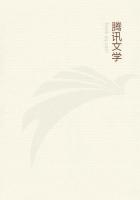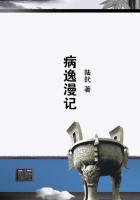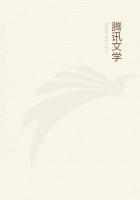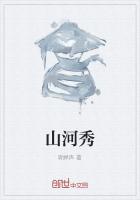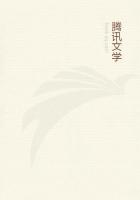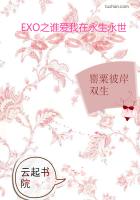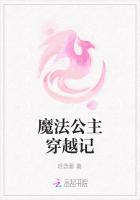A historian who asked only to learn enough to be as futile as Langley or Kelvin, made rapid progress under this teaching, and mixed himself up in the tangle of ideas until he achieved a sort of Paradise of ignorance vastly consoling to his fatigued senses. He wrapped himself in vibrations and rays which were new, and he would have hugged Marconi and Branly had he met them, as he hugged the dynamo; while he lost his arithmetic in trying to figure out the equation between the discoveries and the economies of force. The economies, like the discoveries, were absolute, supersensual, occult; incapable of expression in horse-power. What mathematical equivalent could he suggest as the value of a Branly coherer? Frozen air, or the electric furnace, had some scale of measurement, no doubt, if somebody could invent a thermometer adequate to the purpose; but X-rays had played no part whatever in man's consciousness, and the atom itself had figured only as a fiction of thought. In these seven years man had translated himself into a new universe which had no common scale of measurement with the old. He had entered a supersensual world, in which he could measure nothing except by chance collisions of movements imperceptible to his senses, perhaps even imperceptible to his instruments, but perceptible to each other, and so to some known ray at the end of the scale. Langley seemed prepared for anything, even for an indeterminable number of universes interfused -- physics stark mad in metaphysics.
Historians undertake to arrange sequences, -- called stories, or histories -- assuming in silence a relation of cause and effect. These assumptions, hidden in the depths of dusty libraries, have been astounding, but commonly unconscious and childlike; so much so, that if any captious critic were to drag them to light, historians would probably reply, with one voice, that they had never supposed themselves required to know what they were talking about. Adams, for one, had toiled in vain to find out what he meant.
He had even published a dozen volumes of American history for no other purpose than to satisfy himself whether, by severest process of stating, with the least possible comment, such facts as seemed sure, in such order as seemed rigorously consequent, he could fix for a familiar moment a necessary sequence of human movement. The result had satisfied him as little as at Harvard College. Where he saw sequence, other men saw something quite different, and no one saw the same unit of measure. He cared little about his experiments and less about his statesmen, who seemed to him quite as ignorant as himself and, as a rule, no more honest; but he insisted on a relation of sequence, and if he could not reach it by one method, he would try as many methods as science knew. Satisfied that the sequence of men led to nothing and that the sequence of their society could lead no further, while the mere sequence of time was artificial, and the sequence of thought was chaos, he turned at last to the sequence of force; and thus it happened that, after ten years' pursuit, he found himself lying in the Gallery of Machines at the Great Exposition of 1900, his historical neck broken by the sudden irruption of forces totally new.
Since no one else showed much concern, an elderly person without other cares had no need to betray alarm. The year 1900 was not the first to upset schoolmasters. Copernicus and Galileo had broken many professorial necks about 1600; Columbus had stood the world on its head towards 1500; but the nearest approach to the revolution of 1900 was that of 310, when Constantine set up the Cross. The rays that Langley disowned, as well as those which he fathered, were occult, supersensual, irrational; they were a revelation of mysterious energy like that of the Cross; they were what, in terms of mediæval science, were called immediate modes of the divine substance.
The historian was thus reduced to his last resources. Clearly if he was bound to reduce all these forces to a common value, this common value could have no measure but that of their attraction on his own mind. He must treat them as they had been felt; as convertible, reversible, interchangeable attractions on thought. He made up his mind to venture it; he would risk translating rays into faith. Such a reversible process would vastly amuse a chemist, but the chemist could not deny that he, or some of his fellow physicists, could feel the force of both. When Adams was a boy in Boston, the best chemist in the place had probably never heard of Venus except by way of scandal, or of the Virgin except as idolatry; neither had he heard of dynamos or automobiles or radium; yet his mind was ready to feel the force of all, though the rays were unborn and the women were dead.
Here opened another totally new education, which promised to be by far the most hazardous of all. The knife-edge along which he must crawl, like Sir Lancelot in the twelfth century, divided two kingdoms of force which had nothing in common but attraction. They were as different as a magnet is from gravitation, supposing one knew what a magnet was, or gravitation, or love. The force of the Virgin was still felt at Lourdes, and seemed to be as potent as X-rays; but in America neither Venus nor Virgin ever had value as force -- at most as sentiment. No American had ever been truly afraid of either.
This problem in dynamics gravely perplexed an American historian. The Woman had once been supreme; in France she still seemed potent, not merely as a sentiment, but as a force. Why was she unknown in America? For evidently America was ashamed of her, and she was ashamed of herself, otherwise they would not have strewn fig-leaves so profusely all over her. When she was a true force, she was ignorant of fig-leaves, but the monthly-magazine-made American female had not a feature that would have been recognized by Adam.

